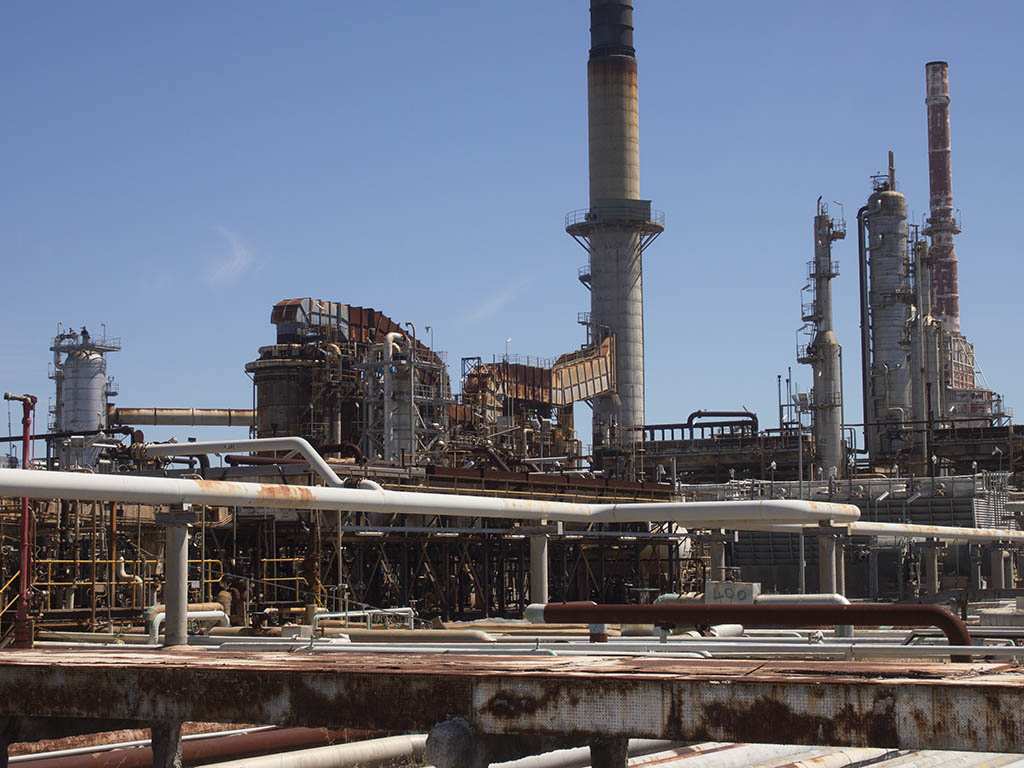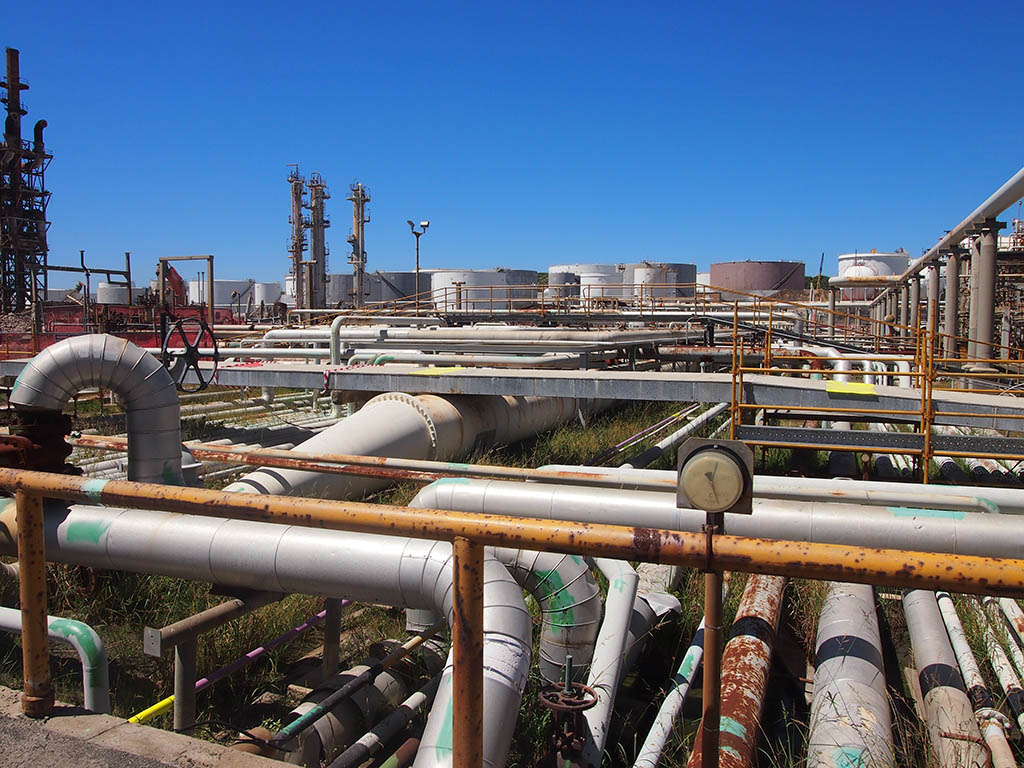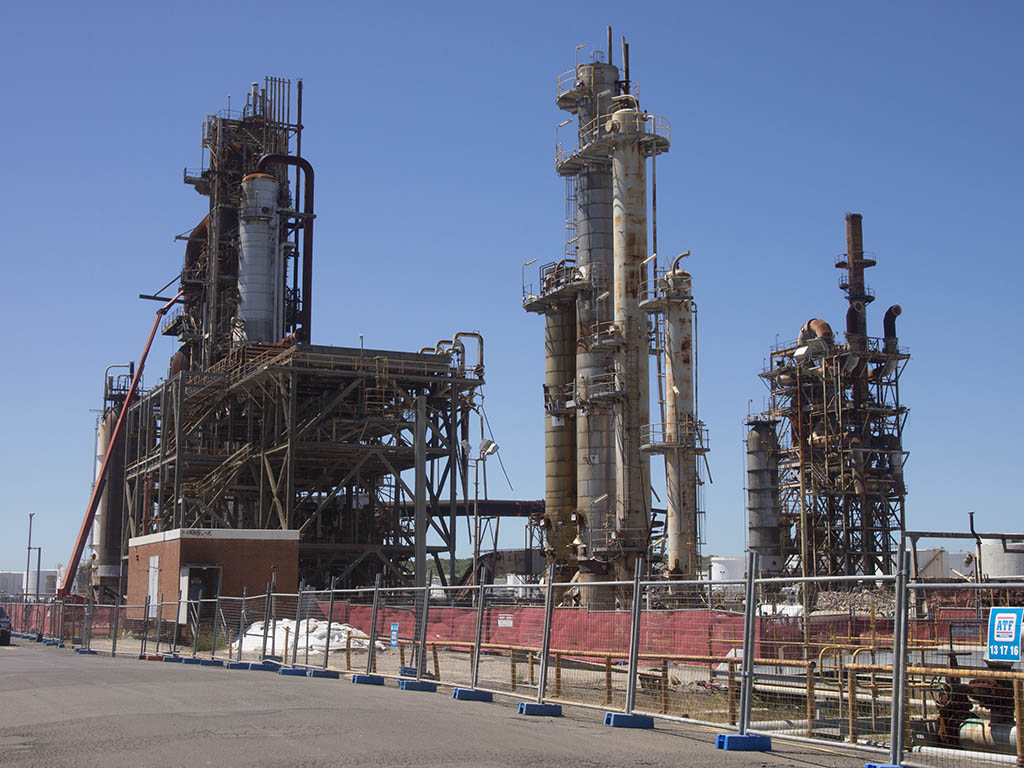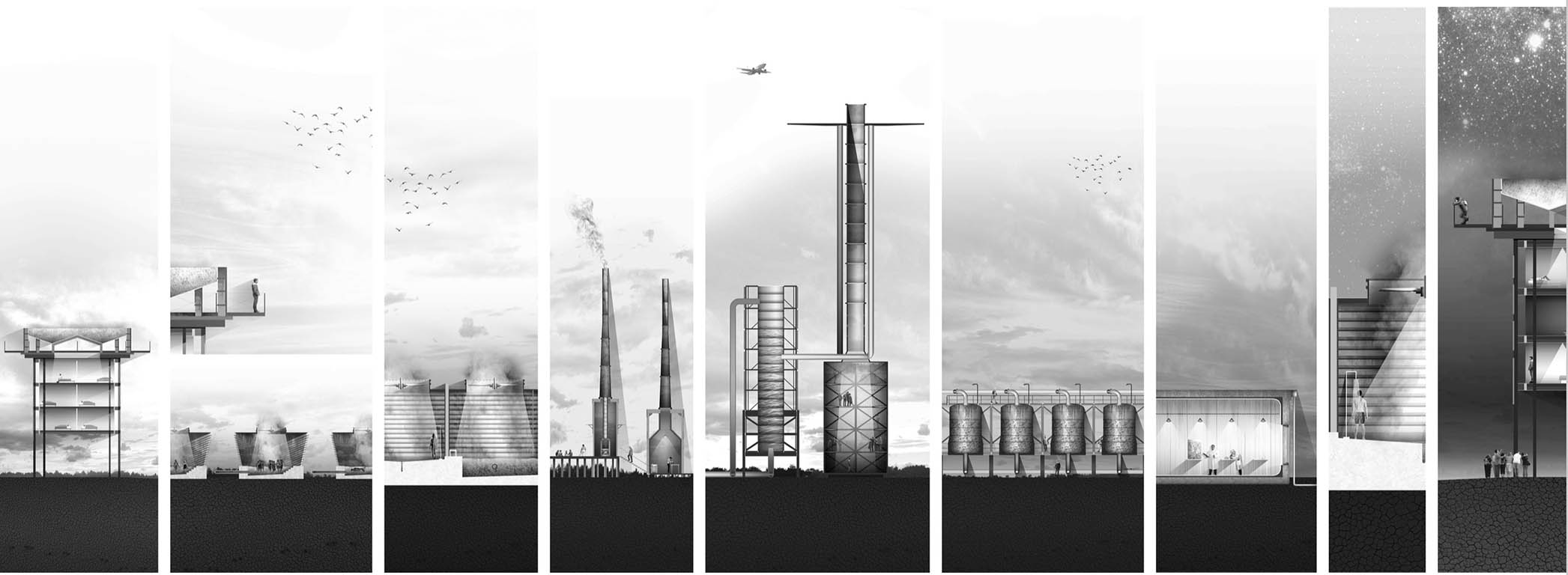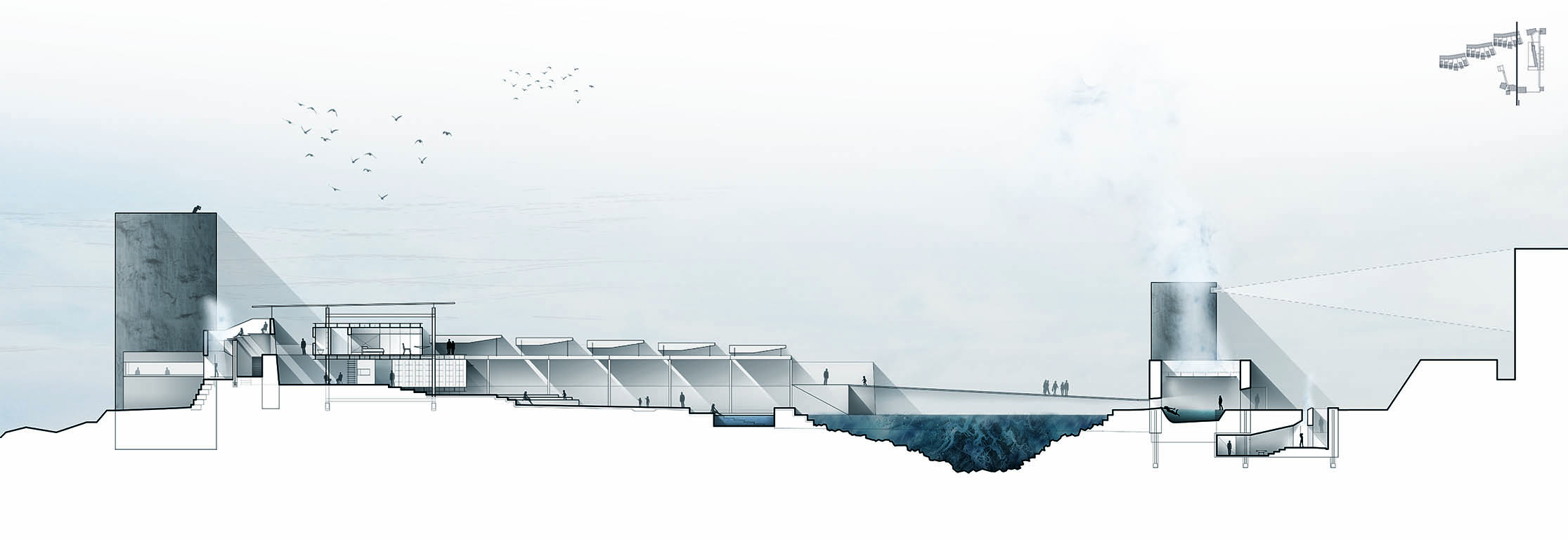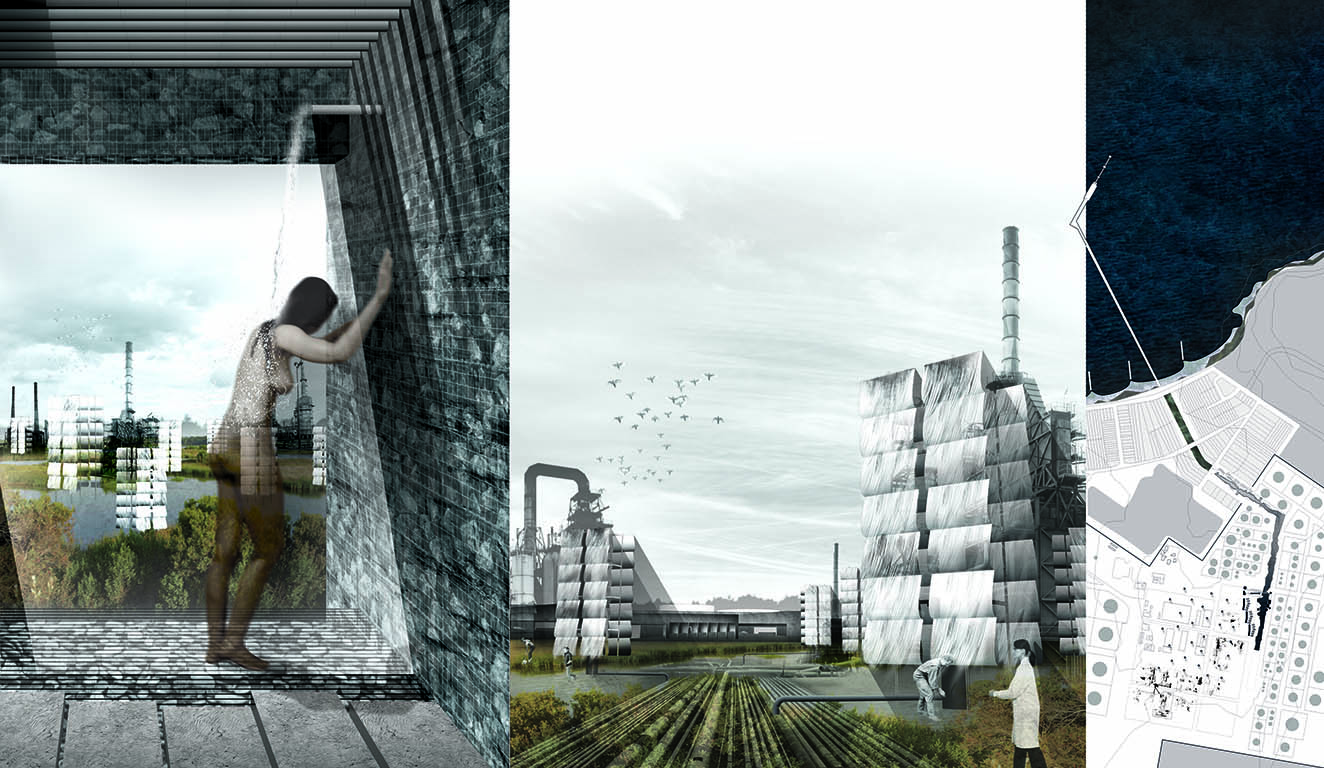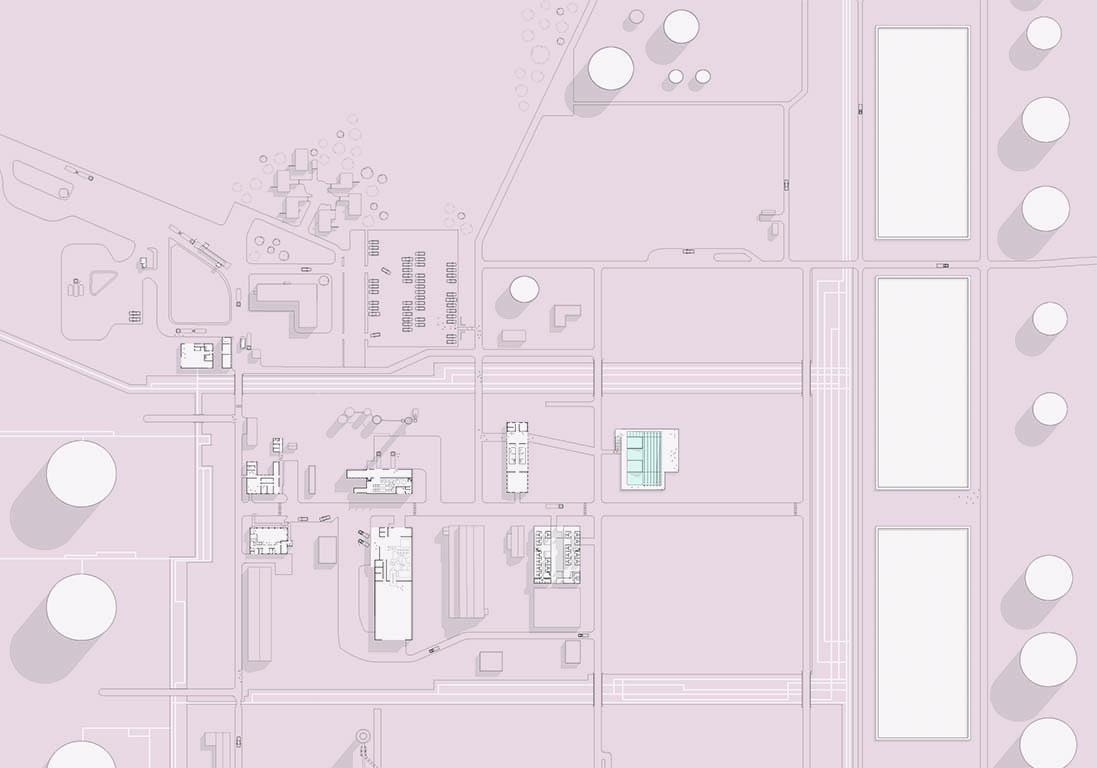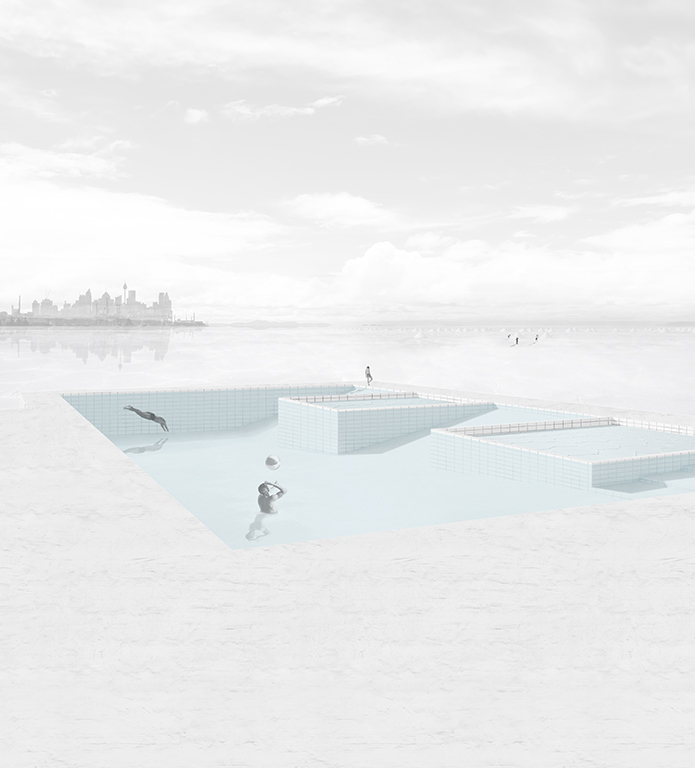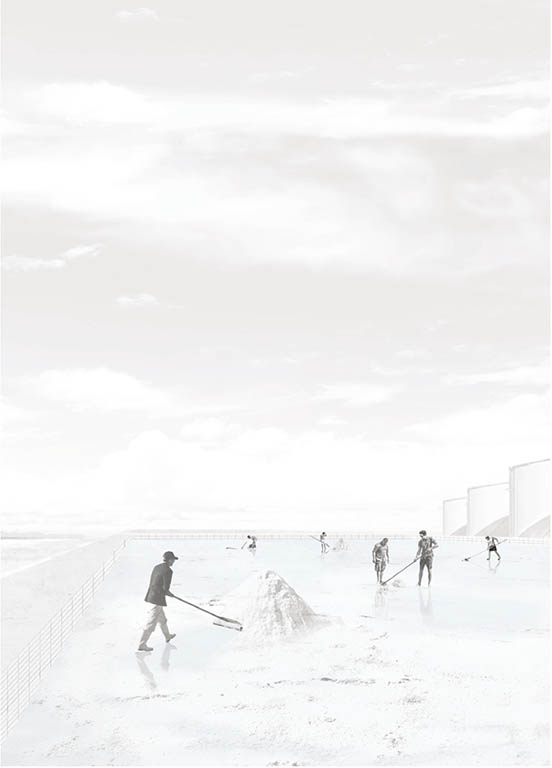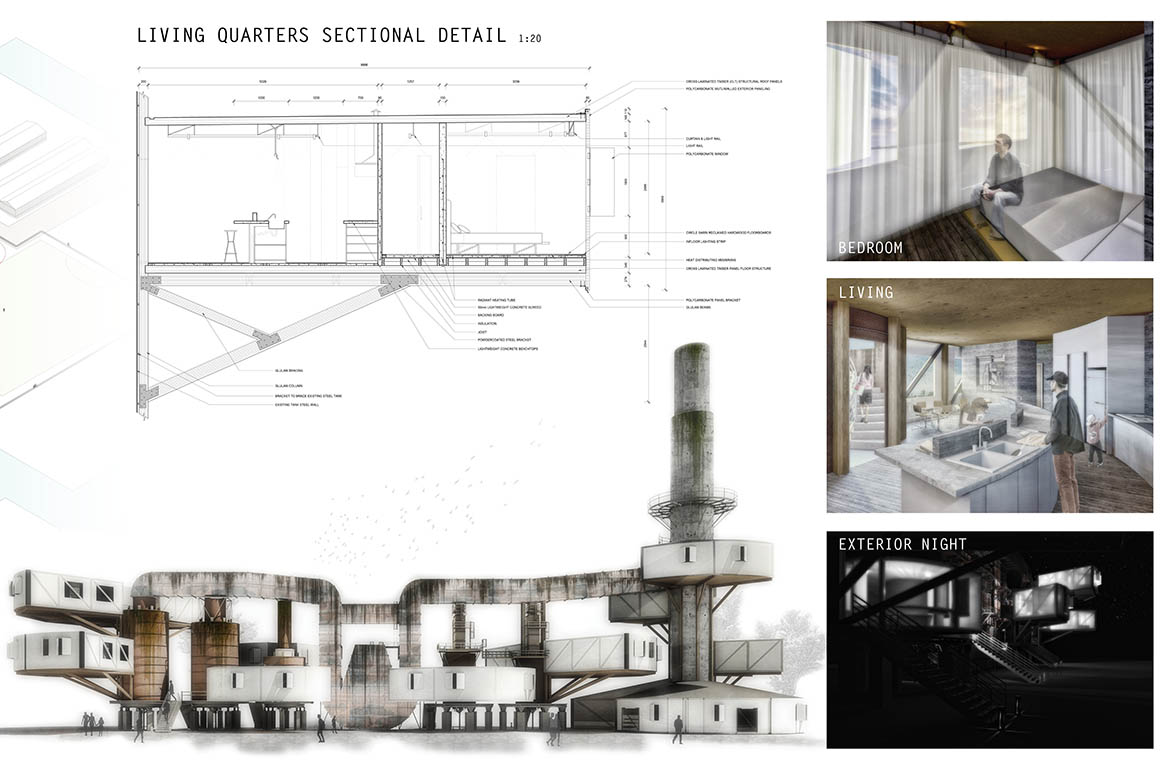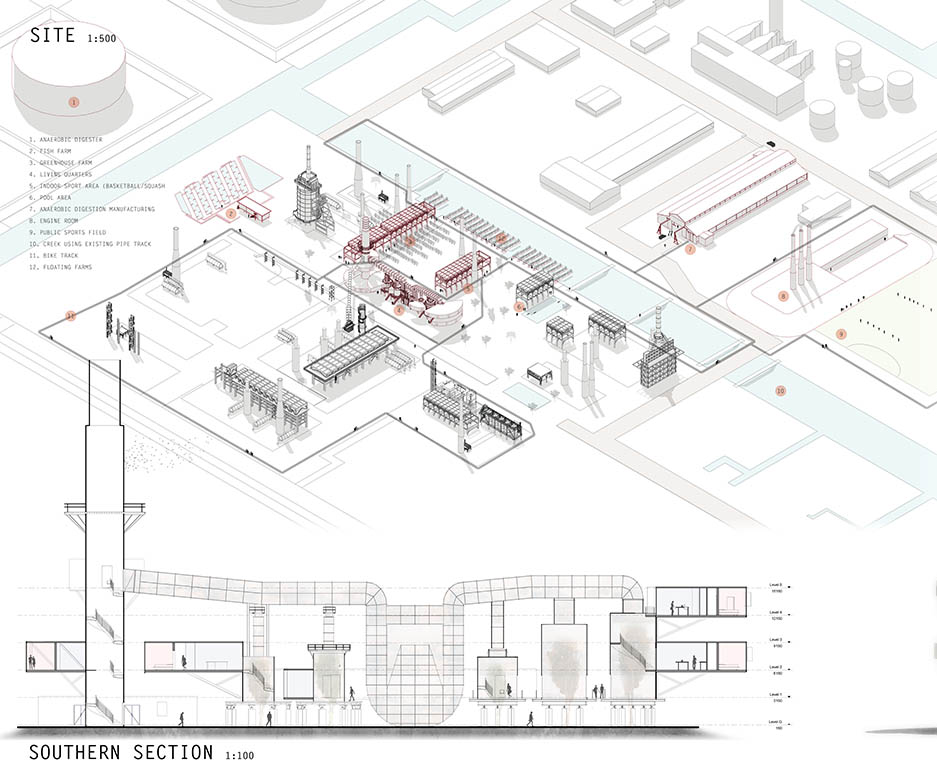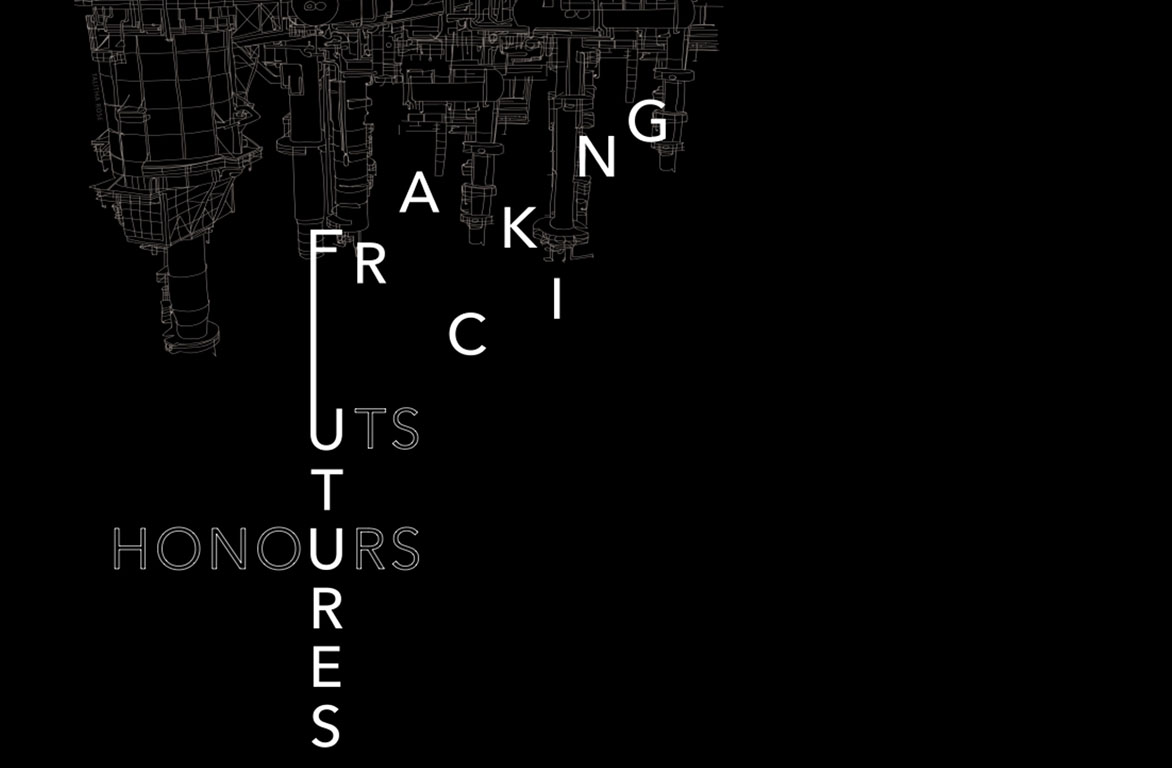Fracking Futures Studio
Honours Spatial Design Studio
Site: Caltext Oil Refinery Botany Bay Sydney
2016
Transformation, adaptation, gentrification are terms usually associated with the redevelopment of former industrial sites altering, more often than not, their architectural characteristics and economic function. A more pressing concern is to conceive alternative new industries in-keeping with industrial sites’ heritage. The decommissioned Caltex Oil Refinery located in Botany Bay, Sydney, creates the opportunity to imagine new and unconventional reprogramming by including rather than excluding its industrial heritage. Emblematic as a dead fossil fuel site, the Caltex Oil Refinery foremost epitomizes emissions pollution that effectively ushered the new epoch referred to as the Anthropocene. The potential exists to revitalize the toxic site through conceiving and designing radical new self-sustainable micro industries along with human cohabitation. Deploying sustainable and bioclimatic architectural principles, the paper explores how can a dead fossil fuel site be restarted to fracture its past and create urban models for the future?
Fracking Futures constitutes a set of projects concerned with reprogramming the Caltex Oil Refinery with a focus on retaining its industrial and economic heritage. Conceptually conceived as anthropogenic anti-thesis to shale oil drilling, the projects’ aims are threefold: to adapt the site’s existing buildings and infrastructure to house a toxic processing plant for treating industrial toxic waste from mining, shipping, metals, contaminated soil, e-waste, human body, pharmaceutical, bacteria and fracking; to design commune housing for 100 people who live and work on site and; to develop a strategy for public engagement that foregrounds industrial responsibility. The paper references design projects undertaken by Honours students in Interior and Spatial Design, University of Technology Sydney that demonstrate radical rethinking and real-world propositions to the reprogramming of an oil refinery. By fracturing the oil refinery’s pollutant history, the projects deliver concepts for ecological living and toxic responsibility as well as new models for social interaction, economic reliance and self-governance.
Co-Lecturers: Olivia George, Andrew Macklin
Examples of projects from Gabriela Veringa, Christine Lee, William Kelly,
